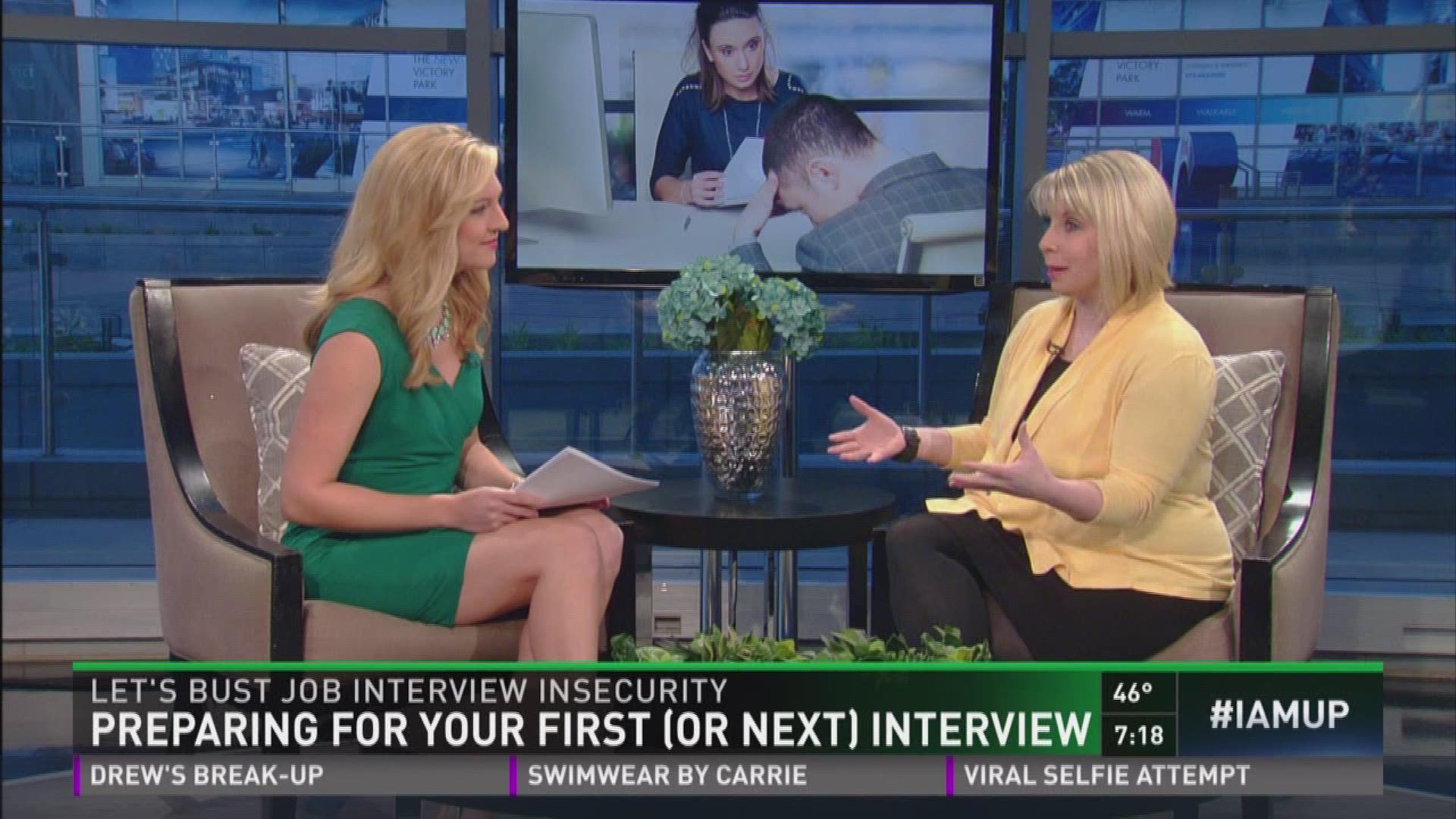Interviews can be hard, confusing and stressful. You have a limited amount of time to impress someone while talking about yourself (which is something most people aren't very comfortable doing!).
College has become extremely competitive. While there are 2,675 colleges and universities in the US, more than 20 million students attend them, so your resume needs to reflect strong grades, a variety of extra-curricular activities, leadership roles and community service time.
And if that's not all, the interview is a key factor in setting yourself apart from hundreds — or even thousands! — of other applicants. While you know they will also ask all applicants the same kinds of questions, your responses shouldn’t be canned. The trick is to be rehearsed without sounding rehearsed.
Interviews can be long. Plan for 20 minutes of talking about yourself.
Body language is key. We notice most often mothers of boys want us to work on this. Maintaining appropriate eye contact and knowing how to sit so you appear engaged and interested in the interviewer is crucial.
The biggest pitfall we see is students who don’t take time to collect their thoughts and instead, immediately start talking, especially when asked, “Tell me about yourself.” This leads to a lot of “filler” language with “ums,” “likes” and “you knows.” By the time you’ve ended your answer, you’ve stumbled through it, and — at best — the answer is neutral instead of impactful.
Solution: Practice and focused techniques
Spending time thinking about/and practicing the admissions rep's questions (yes, out loud!) and your responses will help dramatically. This isn't a cram session the night before the interview; you should spend 10-15 minutes a day rehearsing your responses so they become like muscle memory when you get into the interview. (Kind of like when we turned 15 and got our learner's permit to drive. Hopefully, we spent time every week getting familiar with how the car worked so that by the time we got our licenses a year later, we were comfortable and knew what to expect.)
Make sure you actually end your answers. Some people, especially when they’re nervous, tend to trail off. If you write a paper, it doesn’t end with, “Um, sooo…” Neither should your interview answer!
Utilize breathing exercises to overcome the "jitters" that so often come with an interview. Every time you want to say “um”, take a deep breath. Oftentimes “um” is just a way to catch your breath.
Since you don’t know what questions you’ll be asked, create categories so you can focus your answers – academics, extra-curriculars, work experience, personality, college experience.
Typical Interview questions:
Tell me about yourself
This can often be a trap. The interviewer doesn't want to know EVERYTHING about you, but pick one key story or maybe two (if they're both short) that relate to something mentioned on your resume. You want your answer to have a beginning, a middle and an end.
For example: Your resume says you have excellent grades and are in the National Honor Society. What the resume can't tell you is about the great friendship you developed with a younger student whom you are tutoring in your favorite subject. This experience has taught you about planning, punctuality and working with someone who has different strengths than you.
What are your strengths?
No one wants to sound like they're bragging. Great ways to avoid that are by saying things like, "If you asked my favorite teacher, Mr. Miller, about me, he'd tell you that I'm very engaged in class and do my best to ask thoughtful questions." Or: "If you asked my boss (at fill-in-the-blank part-time job ), she'd tell you that I've really worked on paying close attention to detail and being diligent in my work."
Tell me about your weaknesses
Few people like talking about themselves, and even fewer want to talk about what they do poorly! One way we recommend to navigate this question is to tell a story about how you received feedback (from a teacher/boss/mentor) and the concrete steps you took to improve that situation. For example: "About a year ago, my boss asked me to work on being friendlier with our guests, so I've worked hard to have good conversations with two new guests at every shift." This shows that you are coachable, and when you recognized something has been a weakness in the past, you worked on it to turn it into a positive.
Tell me about a time you took on a leadership role
Obviously, this response will vary from person to person, but make sure your story has characters and dialog. Perhaps you had to step into a leadership role when a fellow student got sick and you had to "save the day."
What do you like to do for fun?
“Hanging out with my friends” isn’t the best answer here. This gives you a chance to spotlight a unique hobby or discuss your extra-curriculars.
Here is a list of other potential interview questions that you could encounter:
- Tell me about a teacher who has impacted your life and why.
- If you know what you're planning to study, why does that topic interest you?
- What are your career goals?
- If you could do high school over again, what would you do differently?
- Recommend a good book to me.
With students looking at schools across the country, Skype has become an invaluable way to connect. Lean not to look at yourself in the monitor. If necessary, cover up your screen with a sticky note so you don’t look at yourself.
Laura Barnett is vice president at Spaeth Communications Inc., a public relations firm that specializes in handling difficult communications challenges.

